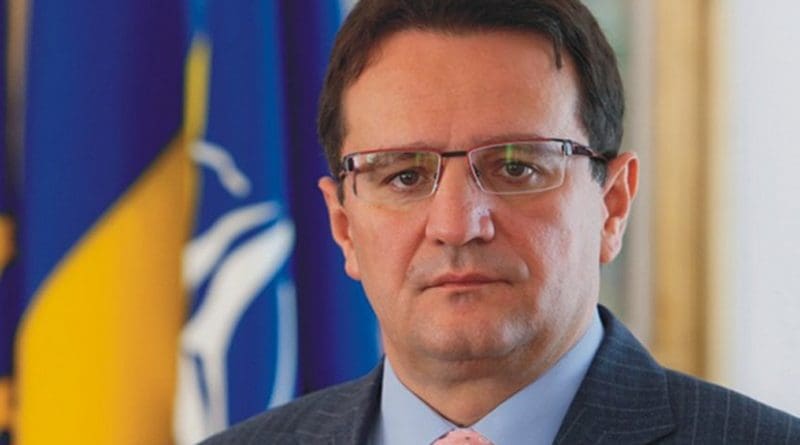Romania Recalls Its US Ambassador After He Criticizes Rudolph Giuliani
By Ana Maria Luca
Romania has recalled its ambassador to Washington after he took former New York Mayor Rudolph Giuliani to task for his letter criticising the country’s anti-corruption drive as excessive.
Romania summoned its ambassador to the US, George Maior, after he told the media on Monday that a letter sent by former New York mayor Rudolph Giuliani, criticising the country’s anti-corruption drive, was the result of lobbying efforts by “individuals who have justice problems”.
“Ambassador George Maior had a stance that was not approved at the central level in the Foreign Ministry or the government and it does not represent the Romanian Foreign Ministry’s stance,” a statement from the ministry issued on Monday read.
“His role is to promote the national interest … and he is required to abstain from public statements that can negatively affect bilateral relations with other states,” it added.
Giuliani, who is reportedly the US President Donald Trump’s lawyer, made headlines in Romania on Monday after getting involved in a row over alleged agreements between anti-graft prosecutors and the intelligence services to use surveillance tapes in corruption investigations.
Giuliani, who now leads a law firm in New York, has sent a letter to Romania’s President, Klaus Iohannis, and other Romanian officials, asking them to verify the agreements between the Attorney General’s office in Bucharest and the Romanian Intelligence Service, SRI, and to stop any pressure on judges.
“I am writing to express my concerns about continuing damage to the rule of law in Romania being done under the guise of effective law enforcement,” Giuliani wrote in his letter, published by Romania’s news agency Medifax on Sunday.
He said that efforts to strengthen the rule of law in Romania had been “severely undermined” by the recent “excesses of Romania’s National Anticorruption Directorate, DNA, under its former Chief, Laura Codruta Kovesi”.
Excesses included the intimidation of judges, defence lawyers and witnesses, phone tapping, forced confessions and unfair trials.
Giuliani also recommended that “an amnesty should be given to those who have been prosecuted and convicted through the excesses of the DNA since the implementation of the secret protocols, including many innocent people who have been sent to jail”.
Ambassador Maior, who headed the Romanian Intelligence Service between October 2006 and January 2015, and whose name is mentioned in Giuliani’s letter as one of the signatories of the controversial agreements between prosecutors and intelligence services, deemed the former mayor a “bubbly and confrontational character”.
The letter was “the expression of a lobby initiated by forces interested in defending characters from our country that have had legal problems”, Maior said on Monday, attending the annual meeting of Romanian diplomats in Bucharest.
The row over secret agreements between the Attorney General’s office and intelligence services, meant to set up joint operative teams to conduct surveillance on graft suspects, started after the Social Democratic Party won the elections in December 2016.
The Social Democrats have repeatedly accused the powerful Anti-Corruption Directorate, DNA, of secretly working with the intelligence services to prosecute politicians, which ruling party officials call an abuse.
In July 2018, President Iohannis, pressured by a Constitutional Court ruling, fired anti-graft chief prosecutor Kovesi at the request of the Social Democrat-led government.
During her tenure, scores of former MPs, ministers and even Social Democrat leader Liviu Dragnea were sentenced for corruption.

